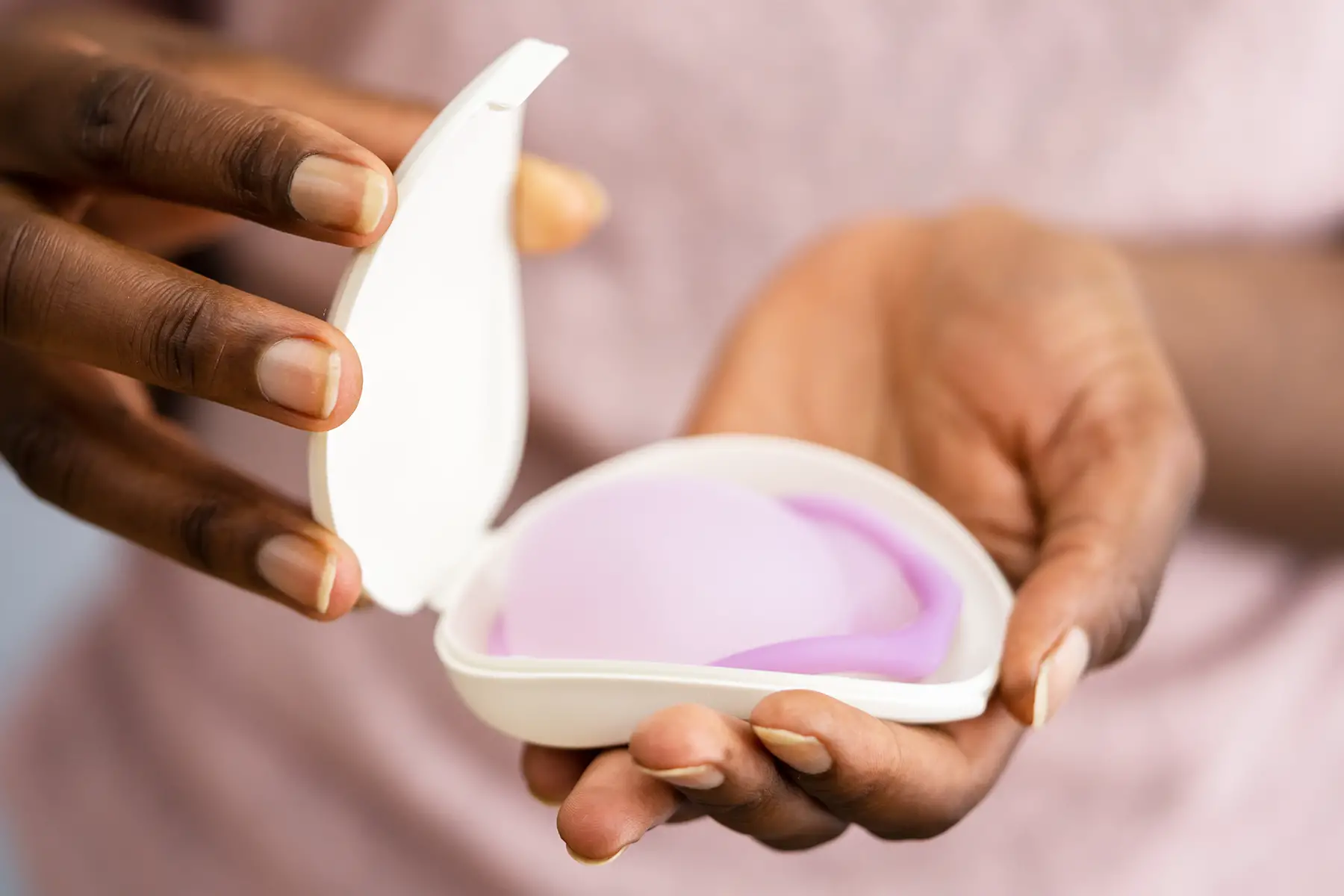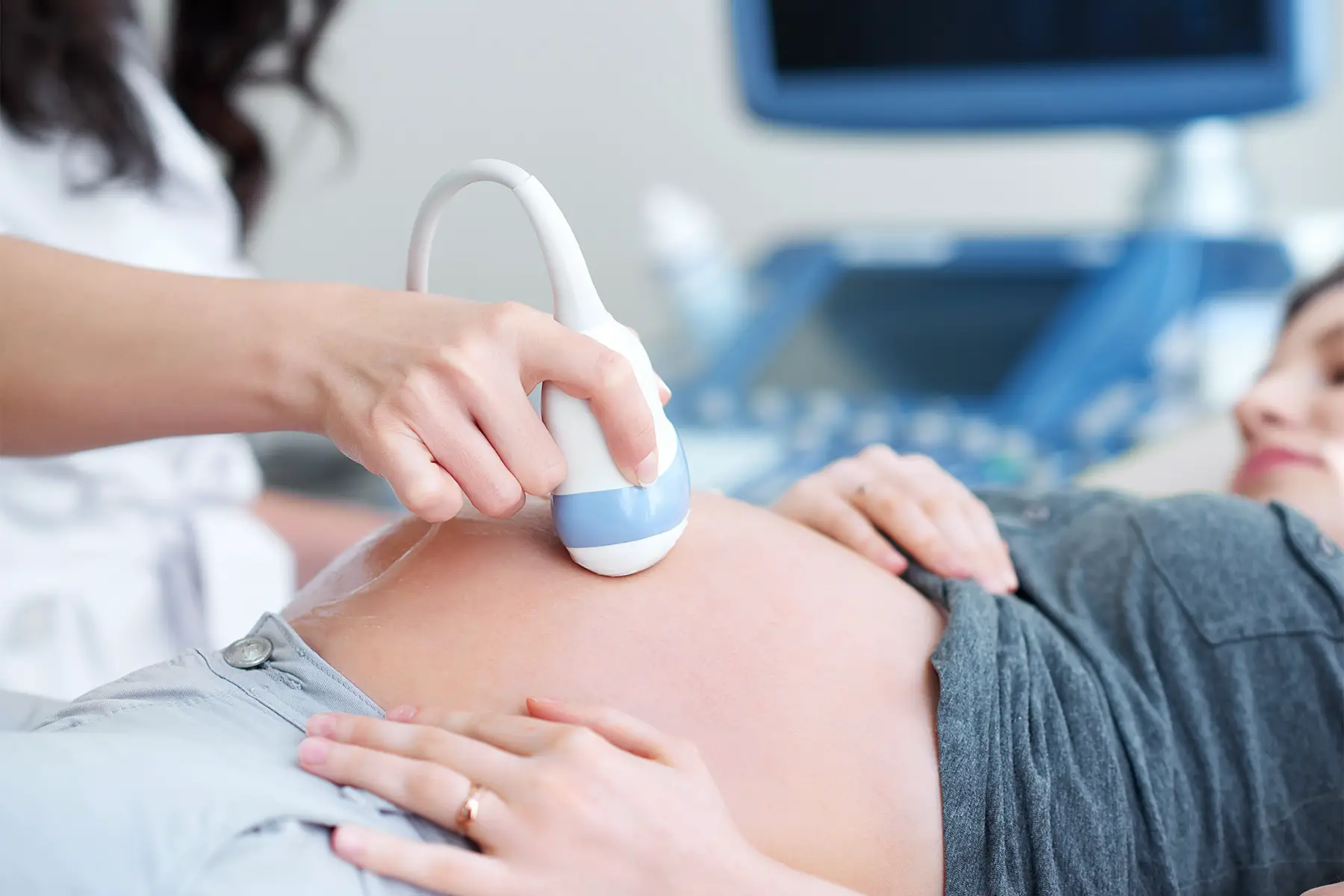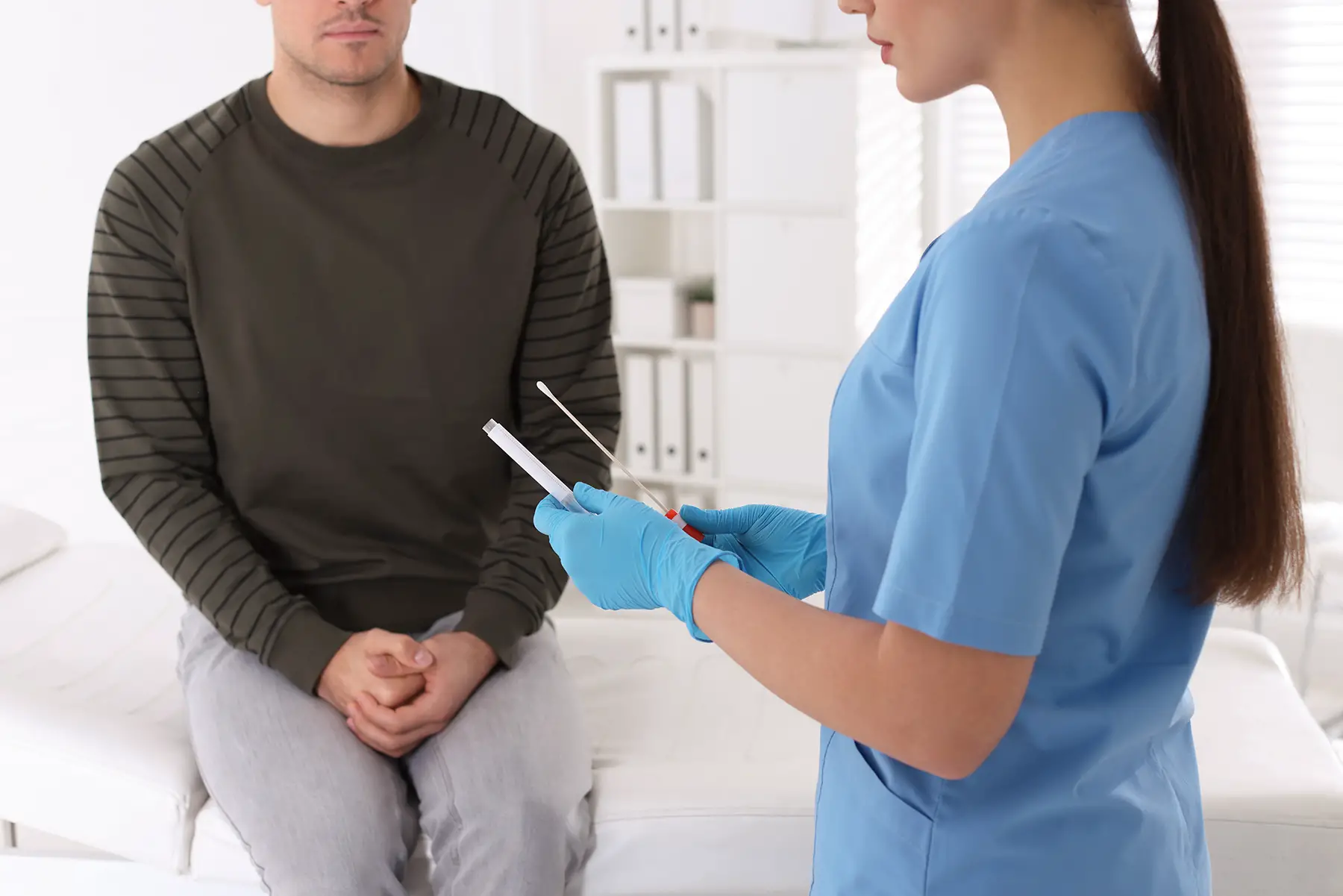Luckily for expats moving to Luxembourg, the country has a high-quality healthcare system, with many services available for free or at a low cost when you have basic state health insurance. Residents can also seek support from non-profit organizations or purchase additional private health insurance in order to access a wider selection of services and cover a portion of their medical costs.
To help you understand everything from where to obtain contraception to how to get tested for STIs, this article provides key information on the following:
- Attitudes towards sex and sexuality in Luxembourg
- Accessing sexual health services in Luxembourg
- Insurance for sexual and reproductive healthcare in Luxembourg
- Accessing contraception in Luxembourg
- Pregnancy and childbirth in Luxembourg
- Abortion in Luxembourg
- STIs and STDs in Luxembourg
- Erectile dysfunction treatment in Luxembourg
- Feminine hygiene products in Luxembourg
- Cancer screenings in Luxembourg
- Services in Luxembourg dealing with sexual problems
- Services in Luxembourg dealing with sexual abuse and assault
- Young people’s sexual health in Luxembourg
- LGBT+ sexual health in Luxembourg
- Useful resources
Cigna Global
Enjoy peace of mind while living in Luxembourg with Cigna Global’s long-term international health insurance plans (12+ months). Get tailored coverage, direct billing with many providers, complex case management, and global care on demand, with access to a network of 1.5+ million doctors, specialists, and therapists.
Attitudes towards sex and sexuality in Luxembourg
Although Luxembourg is among the smallest countries in the world, it also tends to score fairly high in terms of progressive social attitudes, including views on sex and sexuality. In fact, it ranks 15th globally on the 2020 Social Progress Index, with high scores on personal rights, freedom, and choice. Furthermore, according to a 2019 EU survey, 87% of residents think that LGBT+ citizens should have the same rights as heterosexuals, which is the 7th highest percentage among member states.

However, although Luxembourg has supportive laws and policies concerning sexual and reproductive health, along with a high-quality healthcare system to support residents, it currently lacks robust data in several key areas such as family planning, STI transmissions, and adolescent sexual health.
Accessing sexual health services in Luxembourg
The Ministry of Health in Luxembourg oversees state-provided healthcare which is available to all residents. This includes a wide range of sexual health services that are designed to prevent disease and infection, assist with family planning, tackle sexual problems, and generally promote good sexual health in the country. The government-run National Center for the Promotion of Emotional and Sexual Health (CESAS) also brings together a number of national agencies that work in the areas of reproductive and sexual health in the country.
Residents can access public health services through their health insurance. However, visitors and non-residents who are not covered by public insurance need to take out private health insurance in order to use these services. Short-term visitors from EU/EFTA countries, on the other hand, can use their European Health Insurance Card (EHIC) to access them.
In Luxembourg, doctors and medical specialists such as gynecologists deal with sexual health issues. Your GP is usually your first port of call, although you can access most specialists directly without a referral. Treatments take place in a range of settings including health centers, clinics, and hospitals. You can also seek advice on some sexual health issues from a local pharmacy.
In addition to accessing public sector sexual healthcare, you can also utilize some private services by purchasing supplementary health insurance, as well as several non-profit organizations that offer free services.
Insurance for sexual and reproductive healthcare in Luxembourg
All employed residents in Luxembourg must pay mandatory social security contributions, including health insurance, to cover themselves and any dependent family members. This is usually arranged by their employer. However, self-employed workers need to arrange these payments themselves. Notably, those who are unable to make contributions, such as unemployed residents, are still covered for treatment through their local social welfare office.
These payments ensure that between 80% and 90% of healthcare costs, accumulated through the National Health Fund (CNS – French: Caisse Nationale de Santé, German: Gesundheitskasse, Luxembourgish: d’Gesondheetskeess), are reimbursed. This includes:
- Sexual health checks and screenings
- Treatment for infections and diseases
- Family planning services, including contraception and fertility treatment
- Specialist treatment for sexual problems
- Maternity services including antenatal and postnatal care
- Preventative sexual healthcare targeting young people
Importantly, if you aren’t covered by public health insurance, or a reciprocal scheme such as EHIC, then you will need to take out private health insurance to access services; unless you want to pay the full costs yourself. Notably, you can also take out additional private insurance to supplement your state health insurance. This enables you to cover all the costs as well as access treatments that are not available through public provision; for instance, most alternative healthcare and benefits such as single private rooms for overnight hospital stays.
There are various private health insurance providers that operate in Luxembourg. These include global companies that offer expat-friendly international packages, such as:
Accessing contraception in Luxembourg
Luxembourg was among the best-performing countries on the 2020 European Contraception Policy Atlas. Birth control is widely available through pharmacists and family planning centers, with the state reimbursing 80% of costs on many methods to women under 30. Moreover, only 2% of children in Luxembourg were born to teen mothers in 2015, which was below the EU average of 4%.

Types of available contraception
Below are the various types of contraception that are available in the country:
- Male condoms – available in pharmacies and supermarkets at around €2 per condom; free from family planning centers
- Female condoms – aka the femidom or internal condom; you can buy these from pharmacies or online at around €7 for a pack of three
- Birth control pill – available on prescription from a GP or gynecologist; it costs around €18 for one cycle, but 80% is reimbursed to women under 30 who have health insurance
- Hormonal patch – available on prescription at around €144 for one year’s supply (13 cycles); 80% is reimbursed
- Vaginal ring – available on prescription at around €167 for one year’s supply (13 cycles); 80% is reimbursed
- Hormonal IUD – prescription needed; costs around €144 for three to five years, with up to €60 reimbursed for women under 30
- Copper IUD – available on prescription at a cost of around €100-120 for three to five years; not reimbursed
- Hormonal implant – available on prescription and costs around €140 for three years; not reimbursed
- Injectable progestin – given every three months on prescription; costs around €37 for one year (4 injections), but is not reimbursed
- The diaphragm – costs around €35 online
- Silicone cervical cape – costs €60 online
- Spermicide cream – available in supermarkets and pharmacists; costs around €7-20
- Emergency pill – costs around €25 at a pharmacy without a prescription, or free from a family planning center
There are plans to make most contraception free for all in Luxembourg, however, there have been delays in implementing this.
Information and advice on contraceptive methods
You can find more information about the different forms of contraception in Luxembourg on MaContraception (in French and German). For family planning advice and information, you can also visit the website of the non-profit association, Planning Familial (in French), which operates three centers in Luxembourg.
Pregnancy and childbirth in Luxembourg
Public health insurance covers most of the costs of having a baby in Luxembourg, including birth costs, prenatal, and antenatal care. GPs are the main point of contact during pregnancy, however, you can choose to see a gynecologist if you prefer. Doctors can also prescribe midwives to assist with procedures, including postnatal care, and 100% of the costs are reimbursed.

When it comes to giving birth, you can choose to have the baby in a hospital, a birth house, or at home. However, just bear in mind that state insurance doesn’t cover home births.
Abortion in Luxembourg
Abortion has been legal in Luxembourg since 1978, and public health insurance usually covers the costs. Current laws state that you can have an abortion up to 12 weeks into the pregnancy; although doctors can allow late abortions in circumstances where there is a life-threatening risk for the mother or the child to be.
You will need to consult your GP or qualified specialist and undergo a three-day consideration period before having an abortion in Luxembourg. If you are under 18 and still under parental authority, you will also have to get parental consent. If you are seven weeks pregnant or less, you will probably receive a medical abortion. Otherwise, a gynecologist will carry out a surgical abortion.
STIs and STDs in Luxembourg
The most common STIs and STDs in Luxembourg are syphilis, gonorrhea, HIV/AIDs, mycoplasma, chlamydia, and genital herpes, with around two-thirds of infections occurring in under-25s. That said, Luxembourg has relatively low infection rates. For example, the number of reported chlamydia infections is only 7 per 100,000, compared to an EU average of 157 per 100,000.
If you want to get an STI or STD test, you can contact your doctor or gynecologist. Alternatively, you can get in touch with a family planning center. For emergency examination or treatment, you can also visit a hospital emergency department or go to the National Infectious Diseases Department at the Luxembourg Central Hospital (CHL). The Centre Medical also offers free tests and screenings.

Testing usually involves either a blood test, urinary test, or vaginal test (smear). Most common STIs are treated with either antibiotics or antivirals, but if you need further treatment, you will be referred to a specialist or hospital. Health insurance generally covers the costs of testing, screening, and treatment.
For more information and advice about STIs and STDs, you can check the Ministry of Health citizen online portal or the MoH Safer Sex website (in French).
HIV/AIDS in Luxembourg
Luxembourg has relatively high rates of HIV/AIDS with 7 per 100,000. This is more than double the EU average of 3.3. Because of this, the country has ramped up testing and prevention services in recent years. For instance, Red Cross Luxembourg operates the HIV Berodung (HIV Counselling) service which launched a self-testing program in 2020. Testing kits are also available at pharmacies and Cactus supermarkets. You can also get an HIV test for free at a number of health centers and hospitals in Luxembourg.
While drug treatments for HIV/AIDS, including antiretroviral treatment, are available in Luxembourg, there are currently no statistics available regarding the percentage of those with HIV/AIDS who have accessed treatment.
There are currently no immigration restrictions preventing those with HIV/AIDS from entering Luxembourg.
Erectile dysfunction treatment in Luxembourg
If you experience erectile dysfunction in Luxembourg, you can purchase medication such as Viagra over the counter in pharmacies. You can also consult your doctor or a medical specialist about accessing other treatments.
The Ministry of Health lists a number of available treatments including intracavernous injections, external prosthetics, transurethral treatment, penis implants, and radical prostatectomy. However, public health insurance does not currently cover any of these. Therefore, if you take out a private health insurance policy, make sure to check with your insurer about what it covers and how much you can claim as reimbursement.
Feminine hygiene products in Luxembourg
You can find a range of feminine hygiene products in pharmacies and supermarkets in Luxembourg. These were recently made cheaper when the government reduced the VAT rate from 17% to 3% on items including tampons, sanitary towels, pantyliners, menstrual cups, and natural sponges.

Because of this, Luxembourg now has the second-lowest tampon tax in Europe, after Ireland. Interestingly, Luxembourg City has gone even further, installing machines that distribute free tampons and sanitary towels in a handful of public toilets.
Cancer screenings in Luxembourg
Luxembourg ranks 17th globally in terms of overall cancer rates, with 309.3 cases per 100,000 people. Rates are higher among men, reaching up to 335 per 100,000; although the global ranking for men (25th) is lower than it is for women (15th).
There were 3,446 reported new cases and 1,170 deaths from cancer in Luxembourg in 2020. The most common cancers are breast cancer, which accounted for 14.9% of new cases in 2020, and prostate cancer.
The Ministry of Health has launched its second National Cancer Plan for 2020 to 2024. This focuses on improving patient support and digital communication between health organizations. You can find full details of the plan here (in French).
Cervical cancer screening
Cervical cancer is the 11th most frequent cancer among women in Luxembourg and the 4th most frequent cancer among women aged 15 to 44. Around 10 residents die of the disease each year. While there is currently no formal cervical cancer screening program in Luxembourg, all females aged over 15 can book a Pap smear test through their GP or gynecologist every two to three years. This is covered by public health insurance.
In 2008, Luxembourg introduced a free HPV vaccination program for girls aged 12 to 17 offering a choice of bivalent (protecting against two HPV types) or quadrivalent (protecting against four HPV types) vaccines. In 2015, this changed to a bivalent vaccine that is only offered to 11 to 13-year-olds.
Breast cancer screening
Breast cancer is a serious health problem in Luxembourg, with the country ranking second globally in terms of prevalence with 109.3 cases per 100,000 residents. The government runs a national screening program called the Mammography Program, which targets women aged 50 to 70. Screening is free for anyone who is signed up for public health insurance and takes place every two years.

Eligible residents should receive an invitation to book an appointment at a radiology center or unit within a public hospital. If the initial examination reveals any abnormalities, further testing will take place. This is usually an ultrasound, MRI, or biopsy.
Ovarian cancer screening
Ovarian cancer is the 16th most common form of cancer in Luxembourg, with 50 new cases in 2020. However, it is also one of the more deadly forms of the disease, accounting for 38 deaths in 2020. This is probably because it is often not detected until the later stages.
Screenings for ovarian cancer in Luxembourg are not common and usually only occur if symptoms have been identified. Therefore, if you have concerns about being at risk of ovarian cancer, or exhibit any of the common symptoms, you can speak to your doctor or gynecologist about getting tested. Health insurance usually covers the costs for this.
Prostate cancer screening
Luxembourg ranks 19th globally for prostate cancer, with 78.8 cases per 100,000 people. It is the second most common cancer in Luxembourg. Despite this, there is currently no nationwide screening program; although there is an annual awareness campaign about male health that includes prostate cancer awareness.
Presently, you can only access screening for prostate cancer in Luxembourg if your GP or medical specialist flags up a concern. This typically occurs among males aged over 50. Testing involves having a blood test for prostate-specific antigen (PSA) or a digital rectal examination. If tests reveal problems, you will probably be sent for a prostate biopsy. Public health insurance usually covers the costs if a GP or registered specialist orders the tests.
Testicular or penile cancer screenings
Testicular cancer and penile cancer are both quite rare in Luxembourg, and there were no deaths from either disease in 2020. Testicular cancer ranked 23rd in terms of new cancer cases in 2020, with 28 reported cases. Meanwhile, there were only nine new cases of penile cancer.
Screenings for these cancers are not carried out as standard in Luxembourg. However, you can request a genital examination at any time from either a doctor or a medical specialist. If they detect any abnormalities, they will refer you for necessary further testing.
Services in Luxembourg dealing with sexual problems
Both men and women in Luxembourg can access services to treat sexual problems, be it either individually or as couples. For medical issues, you should consult your GP or a specialist such as a gynecologist or a urologist before embarking on any treatment or purchasing medication. They will be able to advise you about the best course of action and inform you what public health insurance may or may not cover.

If you want counseling or sex therapy, you can contact therapists directly. However, it is important to be aware that public insurance for therapy sessions is limited. In fact, you will usually only be able to get funded treatment if your GP or specialist recommends this as a course of action and refers you to a CNS-registered practitioner.
Private treatment generally costs around €70 to €140 a session, while S Therapy offers sexual health advice and in-person and online counseling for €100 per 50-minute session; with an initial free 30-minute session.
You can search for counselors, therapists, and sexologists on the Collège Médical website, Doctena Luxembourg, or the Luxembourg Society of Psychology (SLP).
There are also a few non-profit organizations in Luxembourg that offer free counseling and support for sexual issues, including Planning Familial (in French) and the Pro-Familial Foundation (in French and German). However, waiting lists for these services may be long. You can also find support, information, and advice through the Luxembourg League of Mental Hygiene.
Services in Luxembourg dealing with sexual abuse and assault
If you experience or witness sexual abuse or assault in Luxembourg, you should contact the police immediately by calling 113 or visiting your nearest police station. Any act of sexual assault in the country is subject to criminal law. Rape is punishable by imprisonment of five to 10 years, while other acts of sexual assault or abuse carry a sentence of between one and five years.
You can also access support through a number of organizations and networks. For example, Women In Distress (Femmes en Détresse) offers a range of services including emergency accommodation, counseling and legal support for victims of abuse, awareness workshops on sexual abuse, and services to support trafficked women. The Pro Familia Foundation is another voluntary organization that provides support to women and children that suffer sexual abuse.
You can call 2060 1060 to report any incidences or threats of domestic violence in Luxembourg (open between 12:00 and 20:00). There is also a rape and sexual abuse helpline which you can reach on 49 58 54.
Young people’s sexual health in Luxembourg
In Luxembourg, sex education is mandatory in schools for children from the age of 13; however, these days, it begins in primary schools from the age of six as part of citizenship classes. It then continues in secondary school in biology classes and sometimes religion classes.
Children learn about the following subjects in Luxembourg:
- Body anatomy, and puberty
- Love, marriage, partnerships, and family
- Pregnancy and birth
- Sex and STIs/STDs
- Contraception
- LGBT+ and sexuality
- Sexual abuse and gender-based violence
- HIV/AIDS
- Sexual rights
A 2020 EU report found that Luxembourg covered most key sex education topics. That said, there was a lack of teaching on gender roles and mutual consent.
The non-profit association Planning Familial works with schools, youth clubs, and after-school clubs to deliver sex education and sexual health awareness sessions. However, these are not compulsory and are not present in all schools in Luxembourg.
Luxembourg has a relatively high contraception use among young people, and teenagers can get free condoms at family planning centers across the country. As a result, teen pregnancy rates are well below the EU average. Despite this, STIs and STDs remain a problem in Luxembourg, with two-thirds occurring before the age of 25 and one in four new infections being among teenagers.
Sexual health service for youth in Luxembourg
Children and young people can access state-funded sexual health services for free in Luxembourg. This includes access to doctors, gynecologists, urologists, and other medical specialists for checkups and treatment. Schools also deliver sexual health services through the School Health Department (Service Médecine Scolaire). Notably, the department also deals with any matters of sexual abuse involving children that come to light in schools.
In addition to this, young people can seek free sexual health support from Planning Familial (in French), which has three centers in Luxembourg. Services include:
- Counseling for teenagers aged 14 and above
- Free contraception
- STI testing
- Information on puberty and related hormonal changes
- Advice on pregnancy
- HPV vaccination advice
- Support for victims of Female Genital Mutilation (FGM)
- Support for victims of sexual abuse and violence
LGBT+ sexual health in Luxembourg
Luxembourg is fairly liberal in its attitudes and laws regarding same-sex and LGBT+ relationships. Gay marriage has been legal since 2014 and discrimination against someone based on their sexuality is illegal in the country. Luxembourg also ranks 26th worldwide on the LGBT Equality Index, and 88% of residents see nothing wrong with same-sex relationships, which is the 4th highest percentage in the EU.

LGBT+ residents can access the same healthcare services as other residents in Luxembourg. That said, they are currently not fully entitled to the same rights regarding assisted reproduction technology.
In terms of services catering specifically to the LGBT+ community, CIGALE hosts weekly free and anonymous STI screenings every Thursday afternoon, in addition to providing information, advice, and support on a range of issues. You can also gain support by accessing services and information through the LGBT+ non-profit organization Rosa Lëtzebuerg.
Useful resources
- Government of the Grand Duchy of Luxembourg – the healthcare section of the government website
- National Health Fund (Caisse Nationale de Santé – CNS) – provides information on public health insurance in Luxembourg
- Sante.lu – a government health portal with information on areas such as sexual health and cancer screenings (in French)
- Doctena Luxembourg – allows you to search for sexual health specialists in Luxembourg
- Planning Familial – the website of the main family planning services in Luxembourg (in French)
- National Center for the Promotion of Emotional and Sexual Health (Centre National de Référence pour la Promotion de la Santé Affective et Sexuelle – CESAS) – a national organization that promotes good sexual health through information, awareness, and training









